Anthropology
-
 Anthropology
AnthropologyHow using sheepskin for legal papers may have prevented fraud
Removing fat is key to turning animal skin into parchment. With sheepskin, the process creates a writing surface easily marred by scratched-out words.
-
 Anthropology
AnthropologyRiches in a Bronze Age grave suggest it holds a queen
Researchers have long assumed mostly men ran ancient Bronze Age societies, but the find points to a female ruler in Spain 3,700 years ago.
By Bruce Bower -
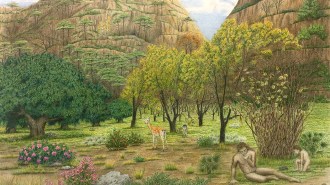 Anthropology
AnthropologyFinds in a Spanish cave inspire an artistic take on warm-weather Neandertals
Iberia’s mild climate fostered a host of resources for hominids often pegged as mammoth hunters.
By Bruce Bower -
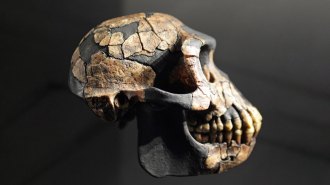 Anthropology
AnthropologyArdi may have been more chimplike than initially thought — or not
A contested study of hand and foot fossils suggests this 4.4-million-year-old hominid was a tree climber and branch swinger.
By Bruce Bower -
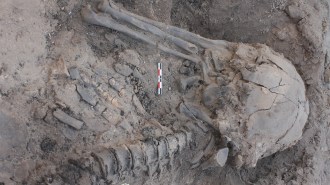 Anthropology
AnthropologyA body burned inside a hut 20,000 years ago signaled shifting views of death
Ancient hunter-gatherers burned a hut in which they had placed a dead woman, suggesting a change in how death was viewed.
By Bruce Bower -
 Anthropology
AnthropologyHumanlike thumb dexterity may date back as far as 2 million years ago
A computer analysis suggests early Homo species developed a powerful grip, giving them an evolutionary edge over some other tool-using hominids.
By Bruce Bower -
 Anthropology
AnthropologyIce Age hunters’ leftovers may have fueled dog domestication
Ancient people tamed wolves by feeding them surplus game, researchers suggest.
By Bruce Bower -
 Genetics
GeneticsPlague may have caused die-offs of ancient Siberians
DNA suggests that the deadly bacterium that causes the plague reached northeast Asia by 4,400 years ago.
By Bruce Bower -
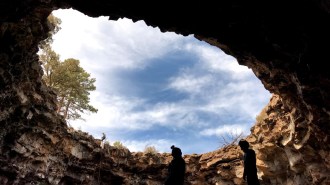 Archaeology
ArchaeologyAncient people may have survived desert droughts by melting ice in lava tubes
Bands of charcoal from fires lit long ago, found in an ice core from a New Mexico cave, correspond to five periods of drought over 800 years.
-
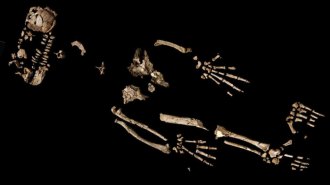 Anthropology
AnthropologyArdi and her discoverers shake up hominid evolution in ‘Fossil Men’
A new book covers the big personalities, field exploits and scientific clashes behind the discovery of the hominid skeleton nicknamed Ardi.
By Bruce Bower -
 Anthropology
AnthropologyBolivia’s Tsimane people’s average body temperature fell half a degree in 16 years
A new study echoes other research suggesting that people’s average body temperature is lower today than it used to be.
By Sujata Gupta -
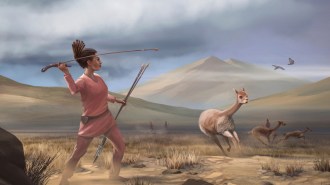 Anthropology
AnthropologyFemale big-game hunters may have been surprisingly common in the ancient Americas
A Peruvian burial that indicates that women speared large prey as early as 9,000 years ago sheds new light on gender roles of ancient hunter-gatherers.
By Bruce Bower